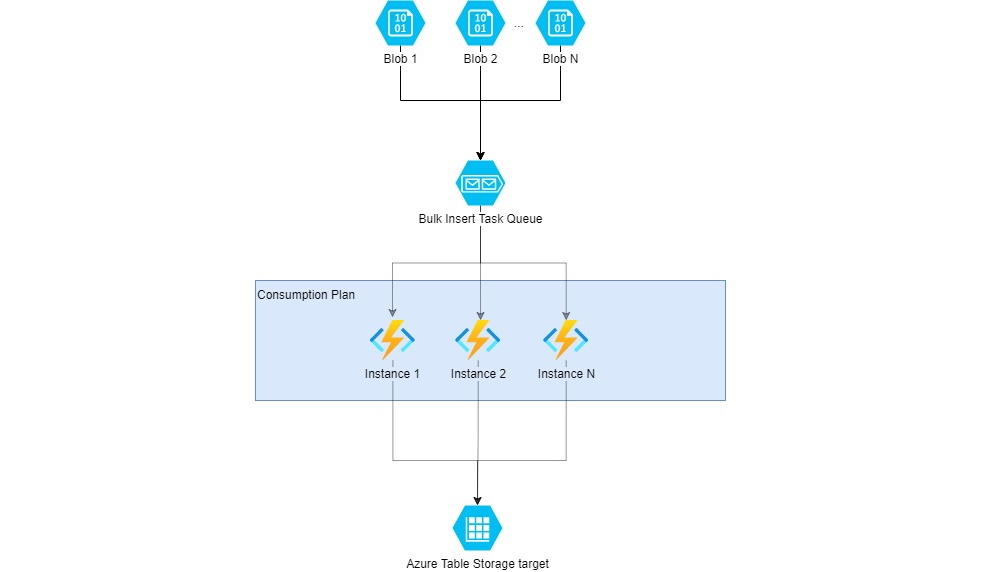In this post, we’ll work though how we can maximize bulk insert throughput to Azure Table Storage using Azure Functions in a consumption plan.
[Read More]Bulk Load To Azure Table Storage Using Azure Function Scale Out


In this post, we’ll work though how we can maximize bulk insert throughput to Azure Table Storage using Azure Functions in a consumption plan.
[Read More]
With the Consumption Plan hosting model for Azure Functions, we can take advantage of event-driven scaling to automatically spin up extra instances of a Function app based on load. In this post, we’ll cover how you can view this in real-time and also how to chart the scaled-out instances retrospectively over time.
[Read More]